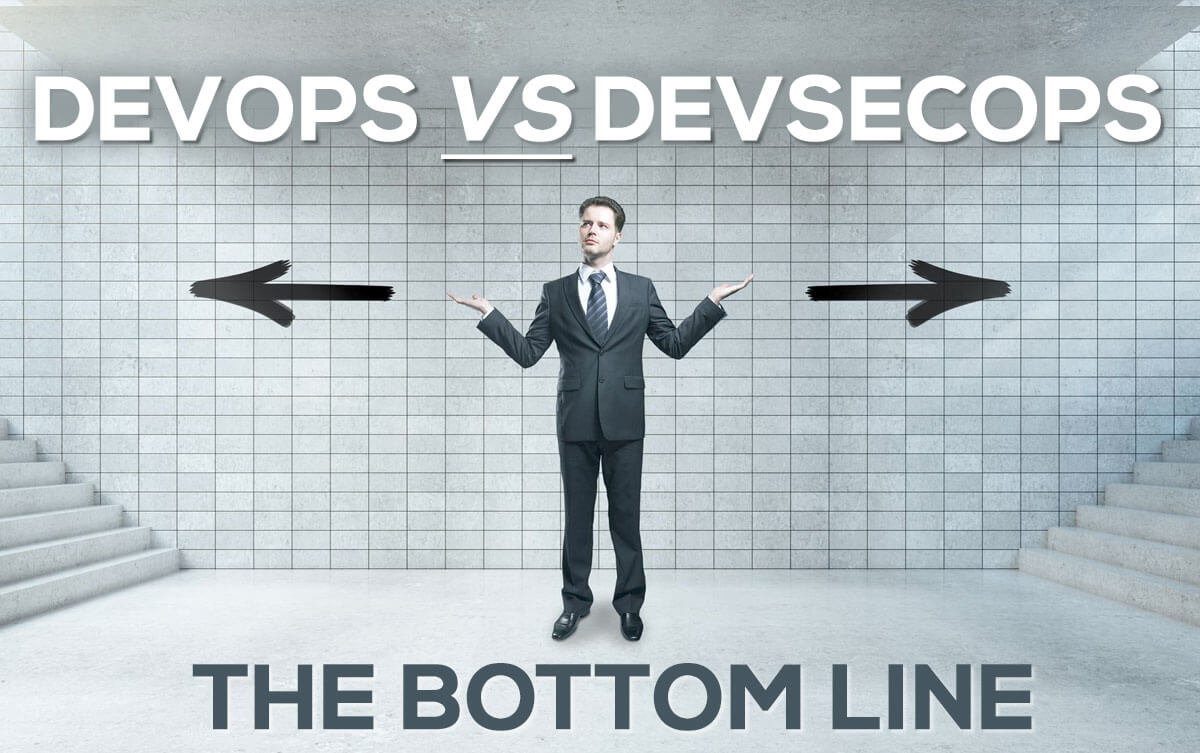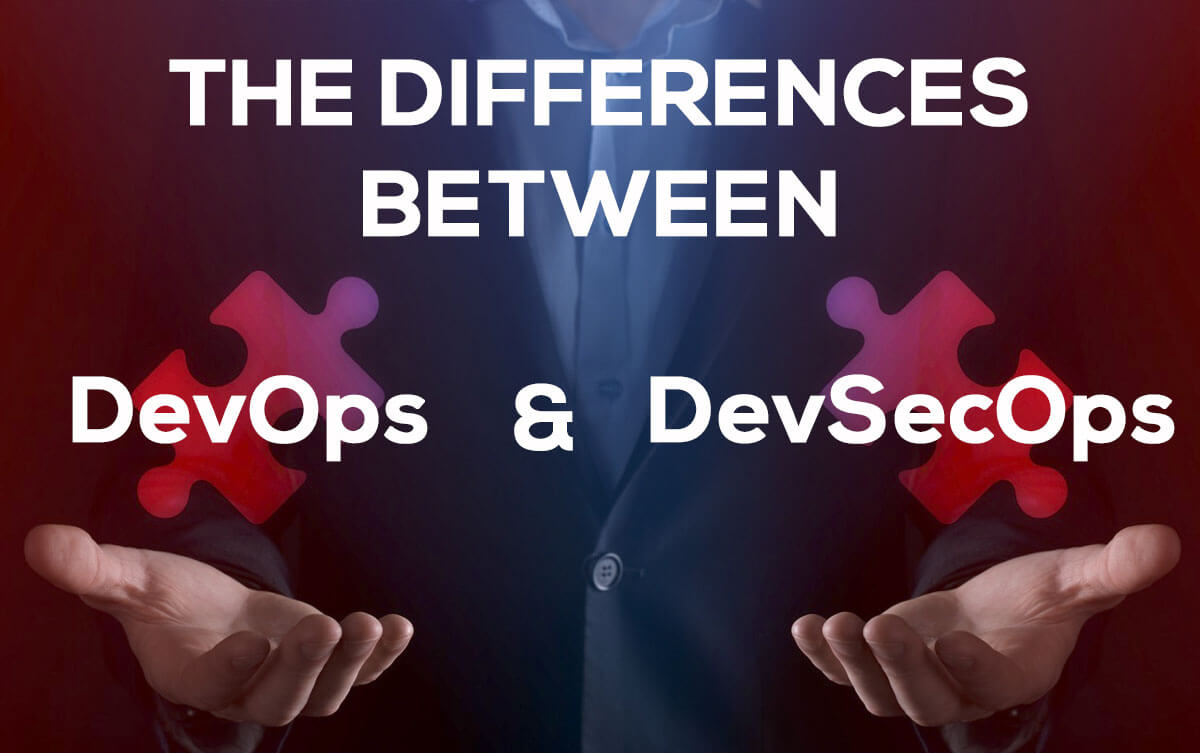The Differences Between DevOps and DevSecOps
Do you want to know the difference between DevOps and DevSecOps? This guide will help you understand the key differences between these two approaches to software development. You’ll learn about the benefits of DevSecOps and how it can improve your team’s security posture.
DevOps and DevSecOps are hot topics these days. Everyone wants to adopt them, but they really don’t know what it means or why it should matter. What exactly does DevOps and DevSecOps mean?
DevOps is a combination of two words: Development and Operations. The goal is to integrate software development and IT operations into a single team. This way, developers can test their code before releasing it to production, and IT professionals can monitor and manage applications at scale.
DevSecOps is the security aspect of DevOps. It focuses on securing the application lifecycle by integrating security practices with DevOps principles.
In this blog we will discuss DevOps vs DevSecOps in comparison to each other.
What do DevOps and DevSecOps have in common?
- The culture of DevOps and DevSecOps are similar, promoting efficiency and breaking down barriers between teams. However, the focus on community helps to create a cohesive culture in DevOps that is not as present in DevSecOps. Both practices rely on similar tools to function, such as automation and cloud security.
- DevOps and DevSecOps share a common goal of improving team collaboration and automating development steps.
- Both DevOps and DevSecOps rely on AI to automate development steps and improve security posture.
- Continuous monitoring is key for DevOps and DevSecOps, in order to identify issues early, improve performance, limit the attack surface, and tighten security posture.
- A culture of collaboration is required for both DevOps and DevSecOps in order to achieve development goals effectively.
- DevOps and DevSecOps both need to achieve quick iteration and development without risking the quality and security of the environment.
- They both require teams to expand visibility across the development lifecycle, collaborating throughout all phases.
What are the differences between DevOps and DevSecOps?
- DevOps is more focused on the development and operations team, while DevSecOps is more focused on the security team.
- With a focus on speed and efficiency, DevOps puts a lot of emphasis on automation and collaboration between teams; while DevSecOps places greater importance on manual processes such as change management or code reviews.
- DevOps emphasizes integration between development and operations teams, while DevSecOps emphasizes continuous feedback and warnings about vulnerabilities.
- The goal of DevOps is to make the infrastructure more powerful so that developers can work more effectively, while the goal of DevSecOps is to ensure the security of applications by helping developers understand and fix vulnerabilities.
- The goal of DevOps is to improve collaboration and communication between teams in order to increase efficiency and speed while developing and deploying software. DevSecOps, on the other hand, focuses on ensuring security throughout the software development life cycle.
- The main difference between DevOps and DevSecOps is the focus on security in the latter. Both philosophies promote communication, automation, and visibility, but DevOps places a greater emphasis on speed, while DevSecOps focuses on incorporating security into every stage of the development process.
Benefits of implementing DevSecOps
Security is an important consideration in any software development process, and DevOps is no exception. DevSecOps extends the basic tenets of DevOps to include security as a key component of the workflow. By automating security activities and integrating them into the development lifecycle, DevSecOps provides a more secure development environment and helps to ensure that applications are compliant with security standards. In addition, DevSecOps empowers developer teams to be accountable for both performance and security in production environments. This increases efficiency and collaboration within organizations while providing a higher level of security for their applications.
- Security is baked into the DevOps workflows: The DevOps culture provides speed and quality benefits with continuous development and deployment methods, but it does not guarantee the security of an organization.
- DevSecOps further optimizes the DevOps strategy by automating security: SecDevOps extends the idea behind DevOps and breaks silos between security teams and devops teams to provide an integrated infrastructure for product development and deployment.
- Empowers developer teams to be accountable for both performance in production as well as security compliance in production: Developer team are empowered to be accountable for not only performance in production but also securty & compliance in production
- Provides security in the continuous integration pipeline: The goal of DevSecOps is to move security activities throughout the development lifecycle and provide built-in security practices.
- Provides a secure development environment: Ensures that your development environment is secure by providing built-in security practices.
- Increases efficiency and collaboration: Integrates with other teams within the organization, increasing efficiency and collaboration
DevOps vs DevSecOps: The bottom line

- Both DevOps and DevSecOps focus on team collaboration, automation, and improving visibility into an organization’s security posture.
- However, DevOps is more about making life easier for developers while DevSecOps is more about enhancing security operations.
- Because of this, the two philosophies are complementary to each other and can be used in different situations without conflict.
- DevOps and DevSecOps are different philosophies for managing software development and IT operations.
- DevOps is about breaking down traditional silos between development, operations, and engineering to make better collaboration and Communication possible.
- DevOps leads to faster releases, more transparent deployments, and improved collaboration between teams.
- They both focus on improving the flow of information and improving process efficiency, but DevOps emphasizes culture, communication, and collaboration while DevSecOps emphasizes security.
- DevOps is more about ensuring that applications are developed in a more automated and continuous manner, while DevSecOps focuses on securing the infrastructure and networks that support applications.
- Although they have some similarities, their focus on different aspects makes them unique
Register for the DevOps foundation and DevSecOps foundation Certification training conducted by our DevOps Enterprise trainer Suresh GP today!!!





